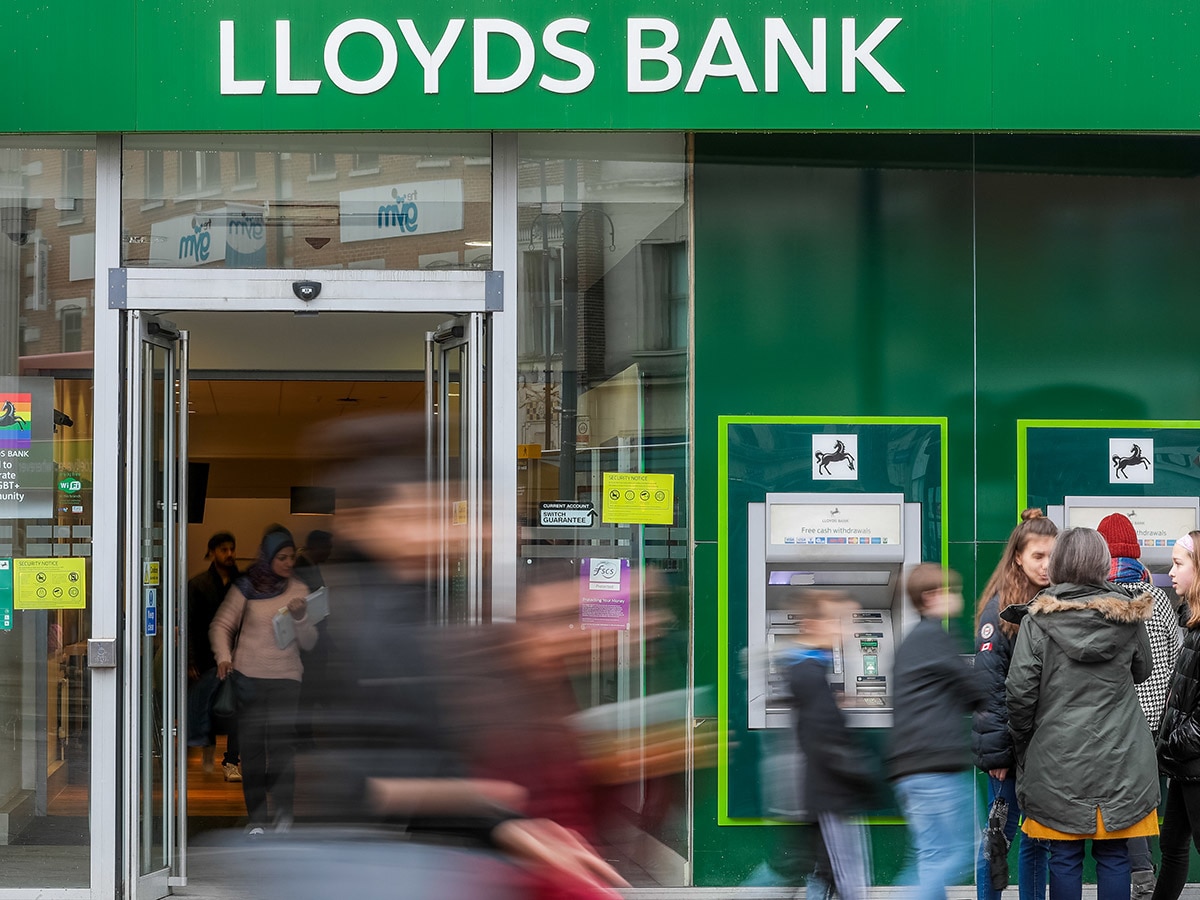Lloyds’ share price plummeted when the coronavirus first rocked the UK economy. Unlike other stocks that have since regained lost ground, Lloyds’ share price is still down circa 50% this year, oscillating between 28p and 35p since May. This stalled recovery hasn’t stopped UBS and Morgan Stanley [MS] predicting major gains for Lloyds’ [LLOY] share price in the future, however.
Lloyds’ share price has arguably been suppressed for some time. Outgoing CEO Horta-Osório’s decade of leadership has seen Lloyds’ share price half, masking an essentially strong business model. Most of these losses can be put down to macroeconomic events outside of the bank’s control, including periods of immense uncertainty for the UK economy as a whole.
If the UK economy is able to bounce back post-coronavirus, then Lloyds’ share price could be a bargain right now. So, how much upside do UBS and Morgan Stanley think is in the stock?
What's the target for Lloyds’ share price?
This month, UBS put a 45p target on Lloyds’ share price, which would see a 47% upside on its current cost (through 17 July’s close). The Switzerland-based bank isn't the only one bullish on Lloyds — Morgan Stanley and HSBC also have a 45p price target on the bank. In June, Morgan Stanley reiterated Lloyds as one of its top picks, citing the bank’s share price valuation as ‘compelling', and noting its profitability.
What could see Lloyds’ share price breakout?
Lloyds’ share price could be seen as undervalued at the moment for a variety of reasons. Throughout outgoing CEO Horta-Osório’s tenure, the bank has strived to shore up costs and become a more efficient operation. With a book value per share of 0.55, Lloyds seems to be trading below the company’s worth.
That said, one of the major criticisms of Lloyds is its focus on the UK retail market. While this concentration has seen Lloyds dominate the country's high street, it has also limited the bank’s income diversification. This is especially problematic in an era of ultra-low interest rates, which affects just how much profit Lloyds can make from its lending ventures.
Expectations that the bank will diversify further could suggest better things are on the horizon for Lloyds’ share price. The bank has already launched its new wealth management service in partnership with Schroders. Given the size of Lloyds’ customer base, this represents a major new player on the market.
If Horta-Osório’s successor can successfully continue to diversify the bank’s income over the next few years, Lloyds’ share price should also gain. Further details on this are expected in a strategy update sometime in the summer.
What are the headwinds Lloyds’ share price is facing?
Established headwinds include the bank's status as a bellwether of the UK economy. This makes Lloyds’ share price susceptible to any negative economic data. Considering that GDP saw a record drop in June, the data has been punishing of late.
Just how much cash Lloyds has to put aside to cover a spike in default loans resulting from the coronavirus will also affect the speed and extent of its share price recovery. According to a report from TheCityUK and EY, a quarter of a million companies could collapse due to the level of debt taken on during the pandemic.
Together with the end of the government furlough scheme in October, Lloyds’ share price could be in for further turbulence before it gets near UBS and Morgan Stanley's price target.
| Market Cap | £21.467bn |
| PE ratio (TTM) | 13.19 |
| EPS (TTM) | 2.30 |
| Quarterly Revenue Growth (YoY) | -35.1% |
Lloyds share price vitals, Yahoo Finance, 20 July 2020
What do other analysts think?
Lloyds’ share price has a more modest 40p average price target from the 18 analysts tracking the stock on the Financial Times, although this would still see a decent 30.9% upside on Lloyds’ current share price through 17 July’s close. Of the 24 offering recommendations, 4 rate Lloyds a Buy and 10 rate it Outperform; none of these analysts rate it a Sell.
The next big event for shareholders will be Lloyds’ half-year results due out later in July. If Lloyds can show that they are weathering the coronavirus storm better than expected, UBS and Morgan Stanley's price targets could well be justified. This would make Lloyds’ share price as it stands through 17 July’s close a potential bargain.
However, if the spike in bad debts is worse than expected, the stock could head further south. Either way, Lloyds’ share price is unlikely to be hitting 45p targets in the immediate future.
Disclaimer Past performance is not a reliable indicator of future results.
CMC Markets is an execution-only service provider. The material (whether or not it states any opinions) is for general information purposes only, and does not take into account your personal circumstances or objectives. Nothing in this material is (or should be considered to be) financial, investment or other advice on which reliance should be placed. No opinion given in the material constitutes a recommendation by CMC Markets or the author that any particular investment, security, transaction or investment strategy is suitable for any specific person.
The material has not been prepared in accordance with legal requirements designed to promote the independence of investment research. Although we are not specifically prevented from dealing before providing this material, we do not seek to take advantage of the material prior to its dissemination.
CMC Markets does not endorse or offer opinion on the trading strategies used by the author. Their trading strategies do not guarantee any return and CMC Markets shall not be held responsible for any loss that you may incur, either directly or indirectly, arising from any investment based on any information contained herein.
*Tax treatment depends on individual circumstances and can change or may differ in a jurisdiction other than the UK.
Continue reading for FREE
- Includes free newsletter updates, unsubscribe anytime. Privacy policy





